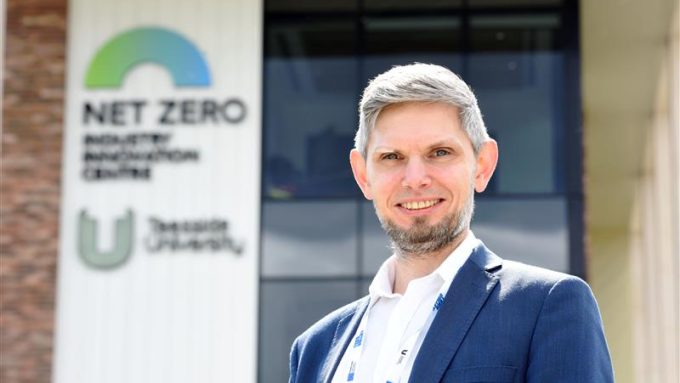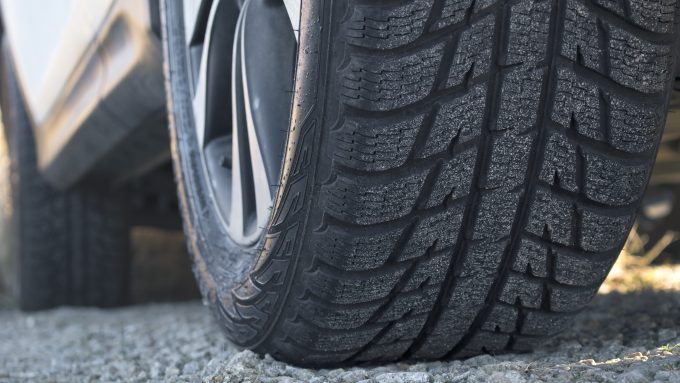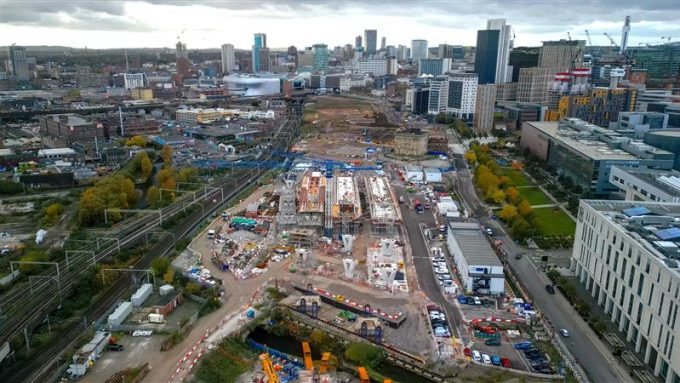
Leading regions and high-potential SMEs out in force for smart cities expo
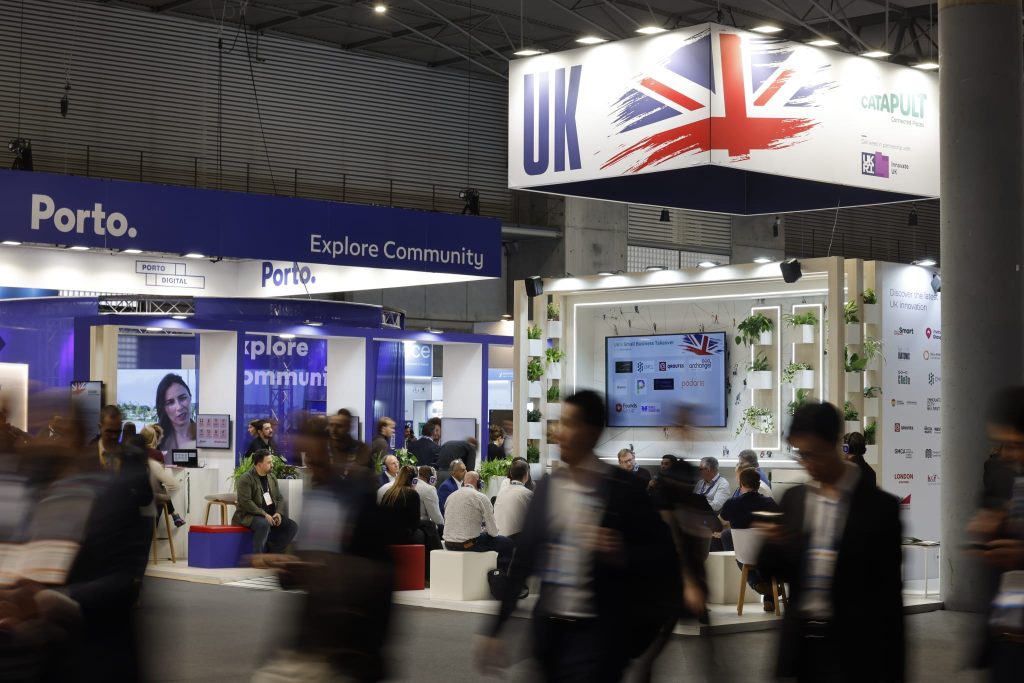
Thousands of delegates joined a record 31 partners representing 10 UK cities and regions and 12 innovative businesses on the UK Pavilion, to promote investment opportunities and build global partnerships.
Highlights included a keynote address by the Department for Business and Trade’s Head of Place, Helen Creighton on the role of the Industrial Strategy to drive regional economic growth. Further sessions featured speakers from Sunderland and Glasgow City Councils on the impact of data architecture and generative AI in transforming public services; and the launch of a digital twin by Nexus Leeds, the innovation and collaboration hub of the University of Leeds.
Reflecting on the three-day event, Connected Places Catapult’s Chief Executive, Erika Lewis said the UK Pavilion was a tremendous showcase of partnership in action.
“For us, our stand really was about our partners; we were selling Team UK, and it did two things. Firstly, it represented an inward investment opportunity; cities and regions were able to promote themselves to delegations from around the world, and secondly a trade opportunity, for the SMEs who joined us. It was all about learning from one another, and having the chance to strike up great conversations.”Erika Lewis, Connected Places Catapult’s Chief Executive
“We help the places that we work with to think more clearly about how they can draw people into their local economies.” Erika added that the event also demonstrated that the Industrial Strategy is “very cognisant of the geography of the UK”, adding that it fitted with the Government’s theme of places as engines of growth.
SMEs a focus
Several of the city and region partners on the stand invited high performing SMEs, who are crucial for local business growth to help develop business opportunities, discuss ideas and further their knowledge of developments in wider, international markets. SMEs were also a focus of the agenda during a ‘takeover’ session on the second day, focusing on innovation and the impact of small businesses in key sectors. Day one saw the Department for Business and Trade host a networking brunch, and day two saw UK co-exhibitors and partners host a networking reception on the UK Pavilion.
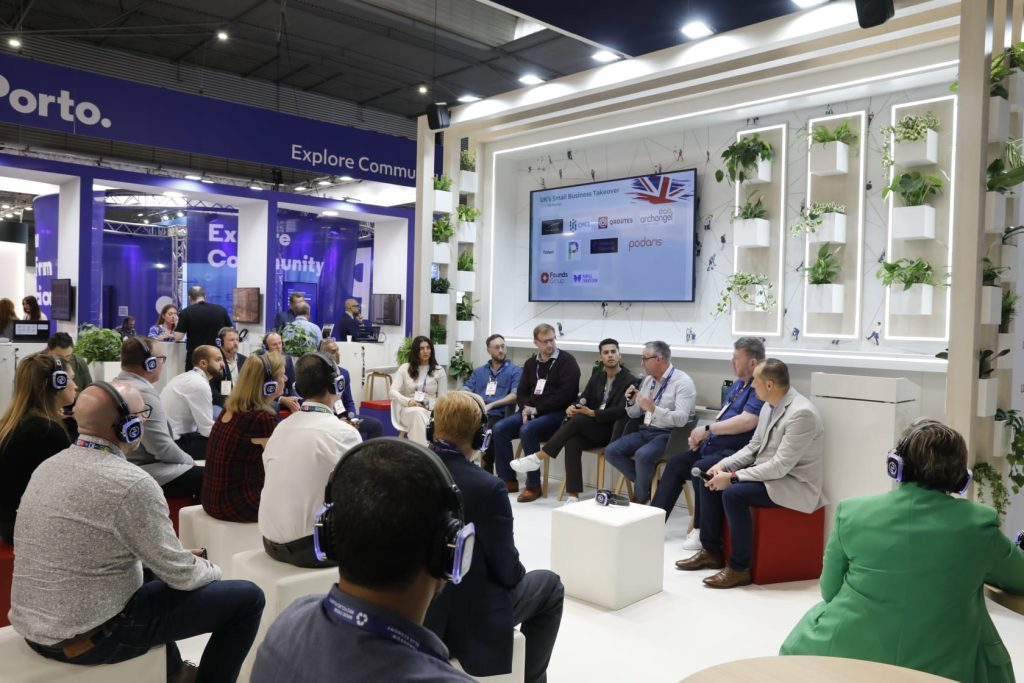
One of the SMEs welcomed to the pavilion was Terminus Technologies. Chief Executive, Joshua Ward said: “To have the backing and support of the UK and the Catapult, and to be able to be show what we can do as a country to the rest of the world, is incredibly exciting.”
The over-riding feeling among participants on the UK Pavilion was one of optimism and positivity, Erika said. “Everyone is now beginning to understand the new UK innovation funding landscape, as many choices have now been made around where some of that infrastructure spend is going to happen.”
“Those incredibly entrepreneurial local areas that we took with us to Barcelona are thinking about how to make the best use of that extra activity, in a way that drives innovation and growth, and ultimately supports the prosperity of their communities.”
Making an impact on the main stage
Erika joined a panel session on the main stage at the Congress to discuss the role that digital innovation can play to improve resilience in the built environment, and help combat threats including the risk of increased flooding and rising temperatures.
She was joined by Cris Turner of Google, Natalia Olson-Urtecho of Repscan, David Ramirez of FCC Enviro, and Bilel Jamoussi of the International Telecommunication Union.
Erika highlighted how the Climate Resilience Demonstrator (CReDo) is setting a new standard for climate adaptation. “Some of the conversations we're having in the UK are much more advanced than in other places, particularly around the interrogation of federated data sets on secure platforms,” she noted. “There is still a great need for the data infrastructure work that we're doing, but we are starting from a really good place.”
She also chaired a session exploring how digital and data sharing infrastructure can help tackle some of the environmental and social problems cities face, alongside speakers from the Liverpool City Region Combined Authority, Innovation City Belfast and CMCL – a data-led SME.
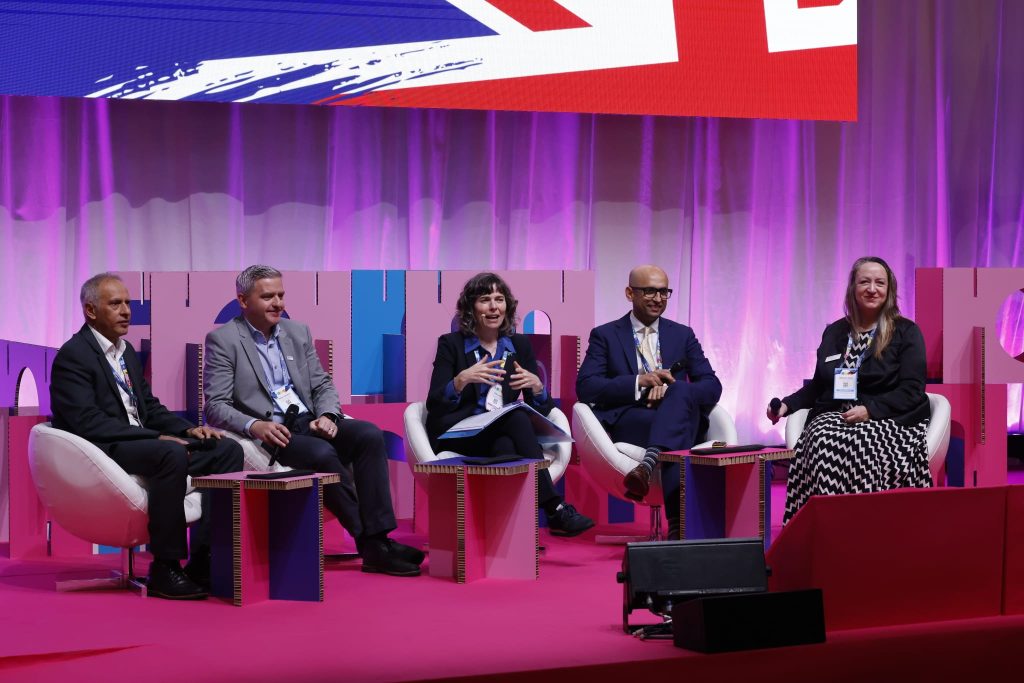
Erika said she came away from the Congress with a strong sense that innovation is all about “people, partnership and purpose” which “run through everything that we do.”
Get involved in our SME community, and read about our work in the built environment, transport and data and digital.

